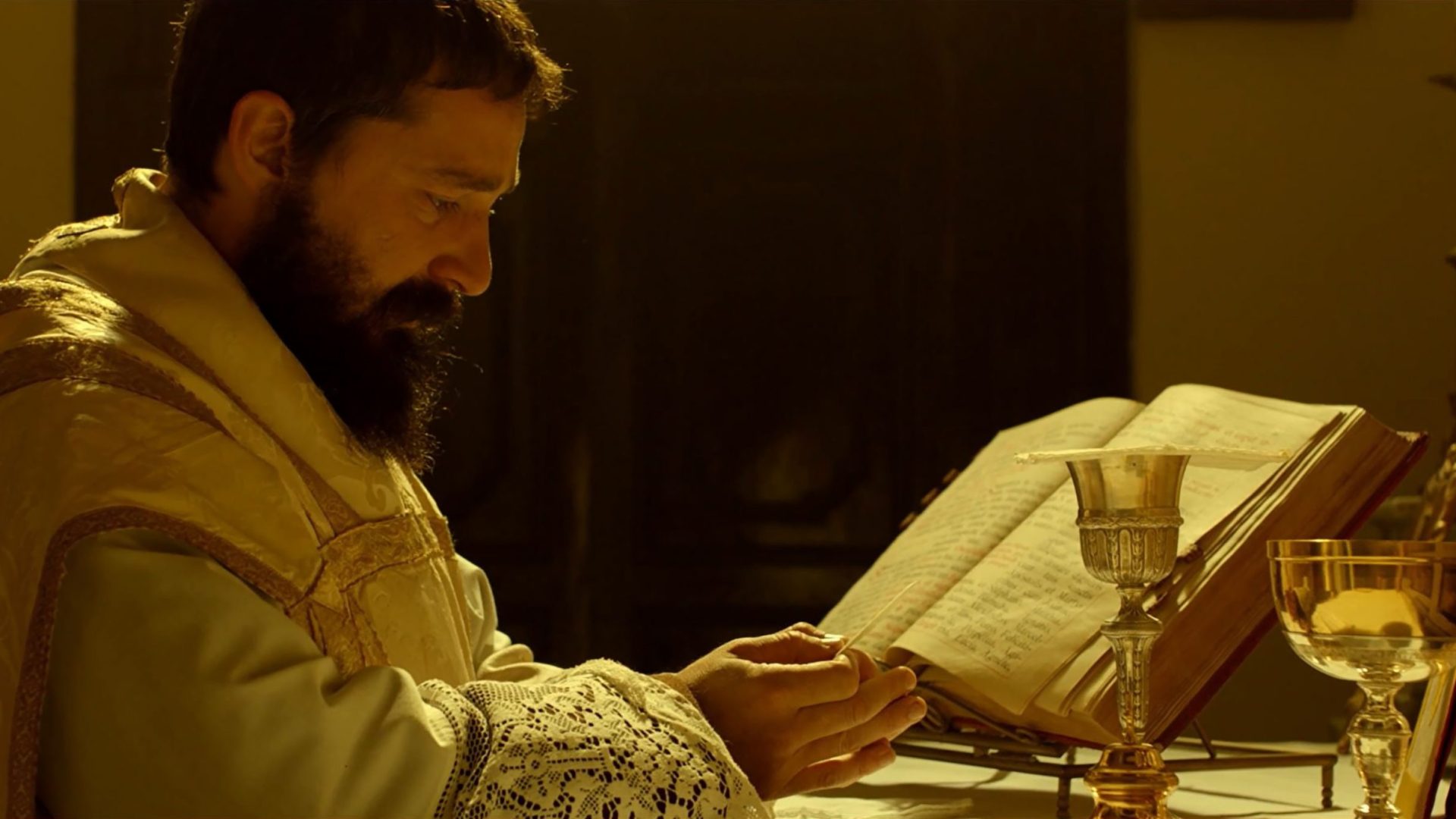Director : Abel Ferrara
Writers : Maurizio BraucciAbel Ferrara
Stars : Shia LaBeoufCristina ChiriacMarco Leonardi
Abel Ferrara’s new film shows that, like Paul Schrader, he has moved away from the world, the flesh and the devil to a restless contemplation of that spiritual struggle that was there all along. This is a strange, rather baffling film – stark and austere, a stylised, theatrical bad dream in candlelight about the personal torment of Padre Pio and his private spiritual agony as a young priest in the few years that immediately followed the first world war.
The actual Pio, who died in 1968 and was canonised in 2002, became a controversial figure for his apparent stigmata, but the film shows none of this. He is played with a highly combustible mix of sadness, rage and anguish by a heavily bearded Shia LaBeouf, but in terms of screen time Pio/LaBeouf is not in the film that much.
It is not easy to say what kind of movie has been shaped in the edit here, and what Padre Pio’s exact role is in the dramatic events that unfold. In fact, he stands apart from these events, locked in his own world of martyred anguish. LaBeouf seems to be making what amounts to a cameo as Pio in recurring interludes that perhaps function as enigmatic commentary on the main action.
The scene is rural southern Italy: San Giovanni Rotondo in Apulia in 1918. Soldiers return from the war, many grievously injured. Some are happy to return to the backbreaking exploitative agricultural work offered by the local landowner, a smug and entitled man with links to the army and church. He is standing for office in Italy’s new elections and smugly expects to win. But there is a wind of change in Italy: many of the young Italians are galvanised by the socialist organisers who tell them they are being exploited; the socialists are also standing for election. But the local powers have a visiting socialist speaker savagely beaten and drive him out of town. Those who side with the socialists are threatened with unemployment and poverty. And when the left win the elections, the reactionaries behave with Trumpian arrogance and murderous spite.
And where is Pio in all this? Will he intervene to stop this manifest injustice? Will he even notice it happening? Apparently not.
One of the reasons he was contentious was that he had cultivated links with the fascists as a young man, even reportedly blessing their weapons. But Ferrara stylises all this: it is another priest who does the blessing and Pio appears guilt-stricken here only for his generalised unworthiness and failure to confront the evil in the world, guilty for having evaded war service, and for being tempted by the devil. Asia Argento has a very strange cameo as a “tall man” who confesses to him his desire for his young daughter, but very insolently and unrepentantly, as if to invite Pio to join with him in his sin. Just as with a daemonic figure that once appeared to him in a vision, Pio screams: “Say Christ is Lord!” but reveals only his uncertainty.
What a weird film it is, with an undeveloped, improvised feel, like a fragment or shard of something else. Yet there is a background hum there, the same background hum of evil you can hear in Ferrara’s other films about violence and obsession: an awareness of something dark and malign. It is a minor film, but interesting.
![]()
![]()


